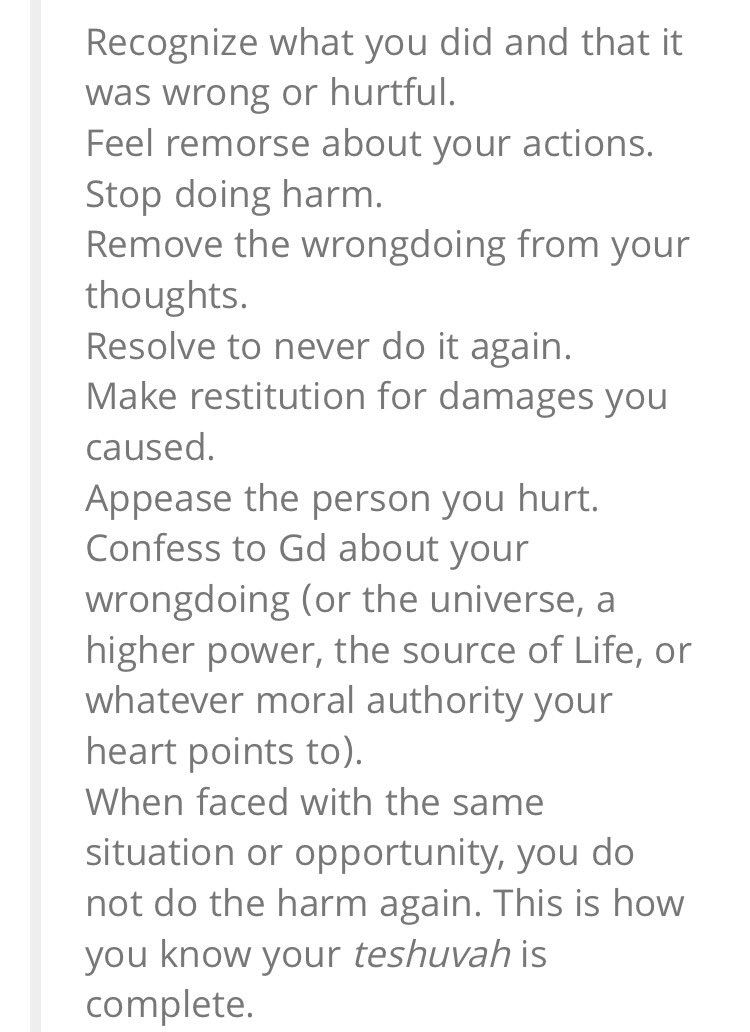Maybe it& #39;s time to review what tshuvah is (and isn& #39;t.) A nice concise summary of the steps, according to Maimonides:
Note a few things: 1) "stopping doing harmful stuff" comes before any amends or apology. You can& #39;t say sorry if you& #39;re STILL DOING IT.
You have to also do very very VERY hard work to change how you think. These days I& #39;d say therapy would be useful embedded in that step.
THEN you have to fix what you broke. Stepped on someone& #39;s foot? Pay medical expenses. (Yes, even if unintentional). Something worse? +
Well, what are appropriate amends to compensate for the harm you caused? This probably negotiated w/person harmed.
Maybe it& #39;s financial. Maybe it& #39;s a public apology (I guess that happens on social media now). Maybe something else. But FIX comes b4 SORRY
You can& #39;t confess to God & do the work of getting absolved on Yom Kippur if you haven& #39;t made amends to AND apologized to the hurt party.
If you haven& #39;t made it right by the real human person you harmed, God doesn& #39;t want to hear it.
And note that tshuvah isn& #39;t complete until you& #39;ve become the kind of person who doesn& #39;t do that thing. Next time you choose differently.
If you haven& #39;t done the transformational work, you& #39;ll find yourself in that position--being harmful the same way--again and again.
Maybe you& #39;re cheating on a new partner. Or talking trash abt a different friend behind their back. Same sins keep returning until we change.
Tshuvah isn& #39;t meant to be something you do 40 days or 10 days a year. This deep-level change is all-year-round stuff. Get clear on that.
So don& #39;t think you can just email off some "sorry about that" letters and not do the work. What& #39;s the work that you need to do?
Also, the stuff in this thread. https://twitter.com/theradr/status/909471595432902656">https://twitter.com/theradr/s...

 Read on Twitter
Read on Twitter


